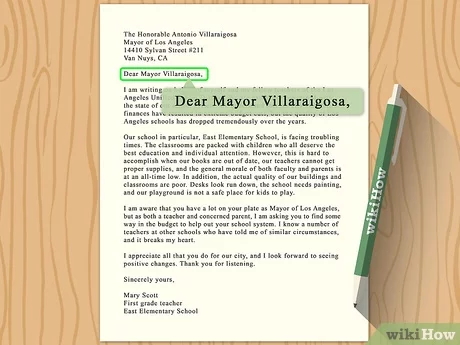The purpose of democracy is to allow all people to share their voice, not just in the ballot box but through other means, such as with government letters. Writing a letter to your government representative, whether a local official or a national leader, is an important way to voice your concern and talk about the issues you and many others experience. But creating government letters requires following a process we will explain here.
1, Know Which Offical You Are Writing For In Your Government Letters

Before writing your letter, you must know which official you should write to. There are countless positions and departments in a government, each with its functions. For example, if you just want to deal with a local issue, then the mayor and the city government should be enough. If it’s a regional issue then a governor, and if it’s even bigger then the national government. Once you do identify the governing body you want to talk to, there are still departments and committees within each office. To ensure you get a speedy reply, research which one you want to do beforehand.
2, Be Clear and Concise About the Issues
You are probably not the only one sending government letters, so they may not have time to read through a long letter. To increase your odds of being heard, keep your letter short and get to the point right away. Start by introducing your problem and what you want and say it in simple terms. This allows them to immediately learn what you want and forward it to the necessary people.
3, Provide Context and Personal Connection
Once you explain the issue, the next step is to expand on the topic by providing context of what happened. Explain why you think they must solve the problem by giving some examples or personal stories. You can show the government officials why their constituents are bothered by the problem and how it can affect things like healthcare, education, or safety.
4, Exlain What You Want Them to Do
Now that you’ve explained in your government letters what the problem is, you should explain to them what you want them to do. Give concrete examples of what you want them to do and some steps they can take. It can be a certain program, providing funding, or opposing a new project. What matters is you are clear and the request is actionable. Government officials are more willing to do something if they have a clear idea of what to do.
5, Use a Respectful and Professional Tone
Generally speaking, dealing with politicians is a tiring and annoying task, but you still need to pay them respect, especially if you want something from them. This should be seen in your government letters where you pay them adequate respect. Be sure to refer to them by their title and make sure you are requesting it and not making demands. They might be more willing to hear you out if you talk about this in your government letters.
While not at high-stakes, your boss is another authority figure you will need to talk to at some point and our guide for talking to your boss can help you.
If you want to create vintage letters with your own or other people’s famous lines, our Vintage Letter service allows you to make and send them here.

Pingback: Writing Letters for Advocacy: Making Your Voice Heard
Comments are closed.